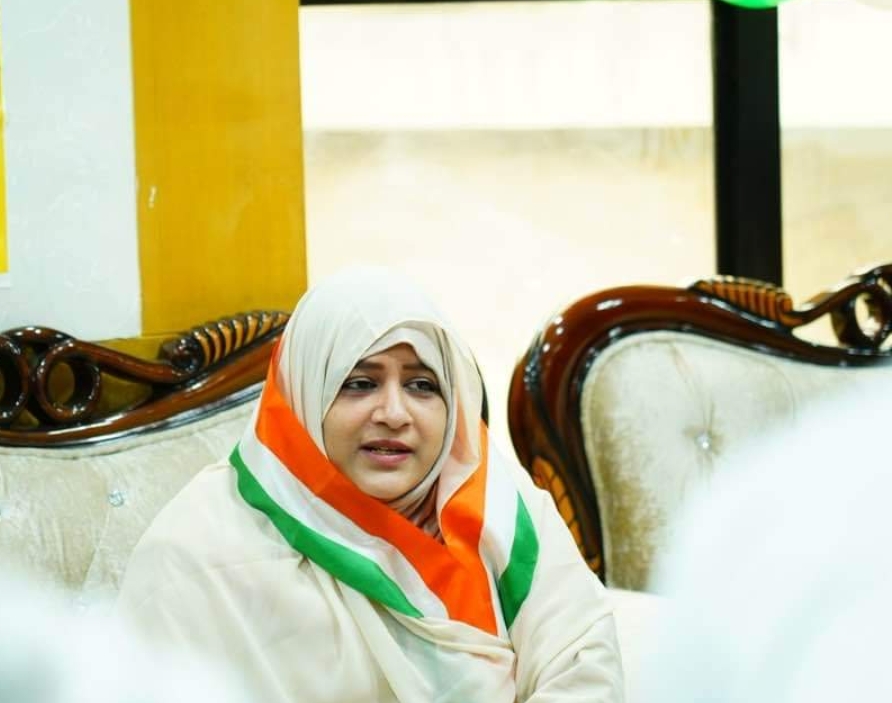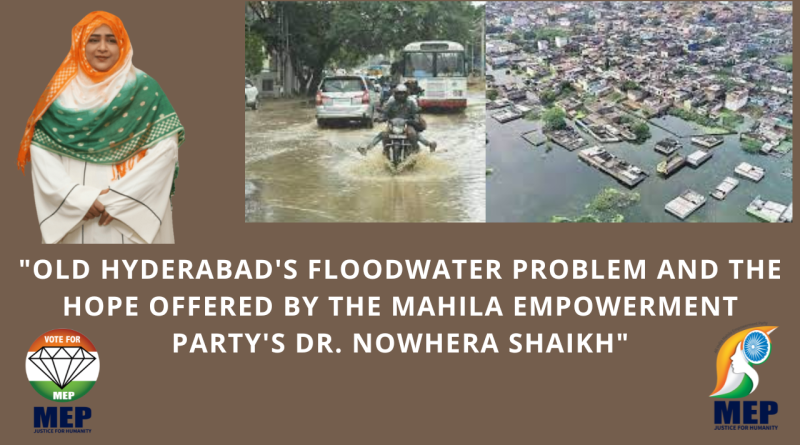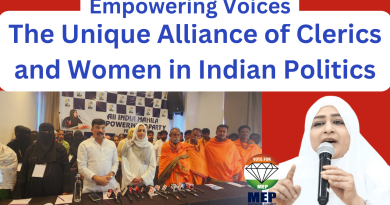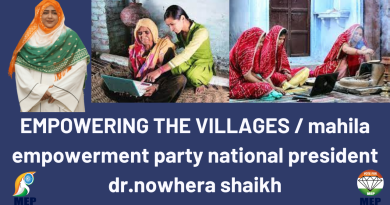“old Hyderabad’s Floodwater Problem and the Hope Offered by the Mahila Empowerment Party’s Dr. Nowhera Shaikh”
The Swollen Veins of Hyderabad
Hyderabad, often referred to as the ‘City of Pearls’, bears a historical charm that coexists with, and often contrasts against, its rapid urbanization. Progress it must, as a major IT hub in India, but not without certain challenges, the most significant of which is persistent flooding.
The Making of a Flood Nemesis

Hyderabad’s floodwater problem traces back to several factors:
- Rapid urbanization and indiscriminate construction lead to a reduction of open space, natural drains, and water bodies.
- Minimal emphasis on the necessary urban planning and poor management of waste and sewage systems.
- Climate change is contributing to intensified and irregular monsoon seasons.
“Hyderabad, the tech capital of India, struggles with waterlogging and floods after every heavy downpour. As we progress toward smart cities, we must also advance in smart urban planning for natural disasters.” Urban Planning Expert
Here Comes the Rain, There Goes the Peace
The immediate and long-term effects of these rampant floods are far-reaching.
- City-wide disruption of traffic and public transport, risking daily livelihoods and the economy.
- Damage to property and infrastructure, translating into heavy and often unexpected financial burdens for citizens.
- Health hazards due to waterborne diseases and potential loss of life
These challenges have necessitated a sustainable solution, one that encompasses not only urban planning and ecological balance but also civic participation and empowerment.
Dr. Nowhera Shaikh: From Empowerment to Resolution

In the maze of discussions and debates regarding Hyderabad’s flood problem, one solution that has made waves is that proposed by Dr. Nowhera Shaikh, the dynamic leader of the Mahila Empowerment Party.
Empowerment as a Key to a Leaky Problem
Dr. Shaikh’s innovative proposal involves a paradigm shift in the decision-making process, a system where citizens, especially women, are actively involved in policy formulation and execution. She believes that the direct involvement of residents can lead to notable improvements in waste management, rainwater harvesting, and the upkeep of the city’s water bodies.
Her plan includes:
- Establishing local community groups for direct participation in urban planning and implementation
- Introducing policy incentives for residents who contribute to waste management and rainwater harvesting initiatives
- Focus on improving female literacy and creating empowerment programs around civic duties and sustainable living.
“The empowerment of women, the custodians of the home, is vital to effecting a change in society’s approach to urban cleanliness and natural resource conservation.” Dr. Nowhera Shaikh
Conclusion: Hope Floats

For Hyderabad, Dr. Nowhera Shaikh’s solution presents a glimmer of hope. By turning a civic problem into a ladder towards women’s empowerment, she introduces a new perspective on combating floodwater problems. Her strategy doesn’t simply tackle the flood issue head-on but fosters a general upliftment of society, which, in itself, is a floodgate of potential societal progress.
Call to Action
Let this be a call to action for you, dear reader, to raise awareness about the floodwater problems in your locality. Support civic empowerment initiatives like those proposed by Dr. Shaikh, and take part in your community’s dialogue to seek sustainable, resident-driven solutions. Let’s turn the tide together, turning waterlogged streets into avenues of change.



